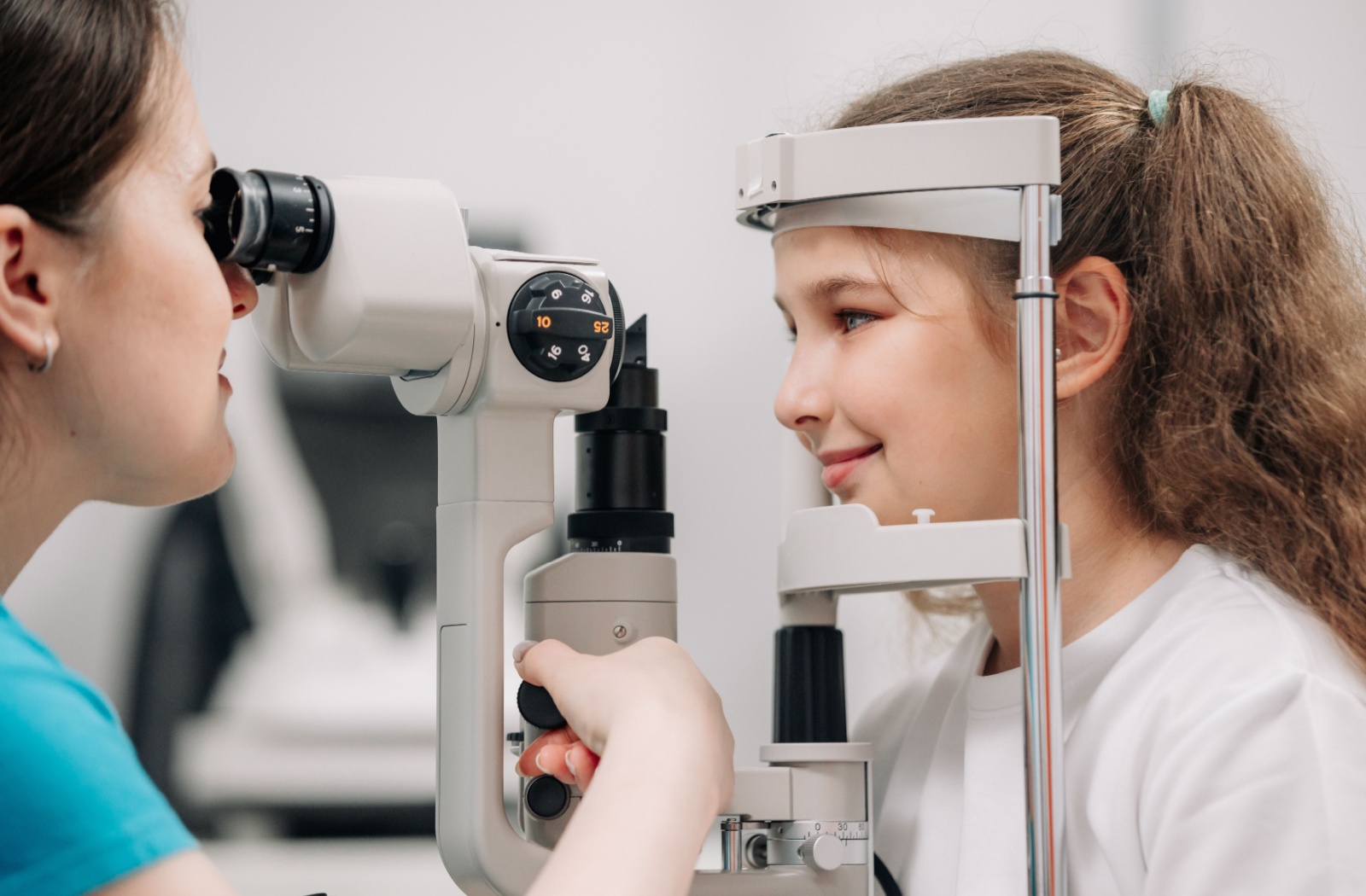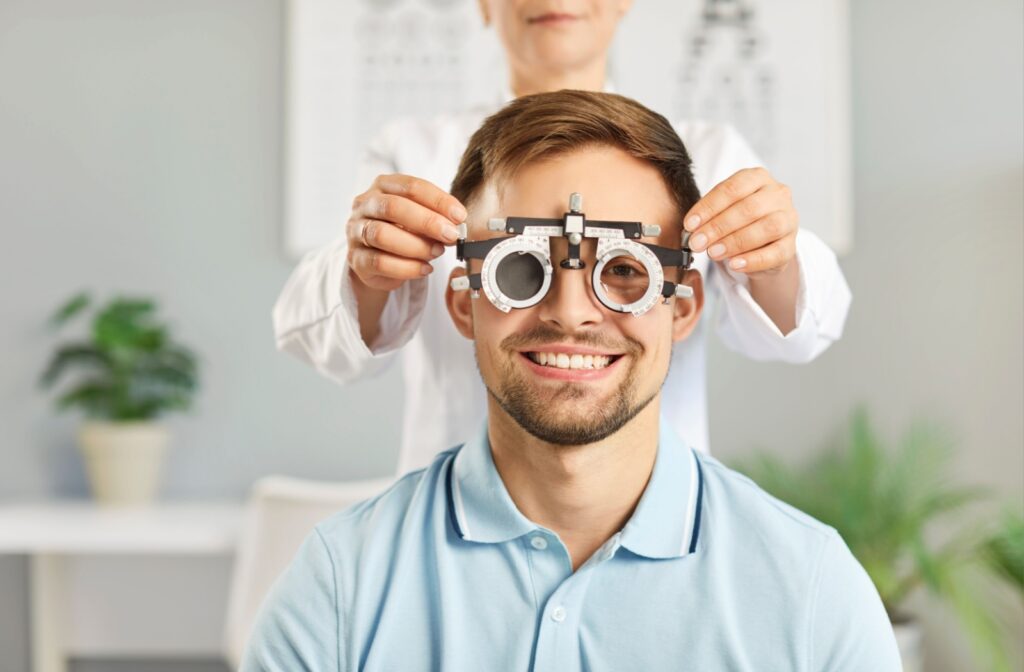Eye exams are more than just a prescription check for glasses—they’re a key part of maintaining overall health. Yet, many people delay or avoid scheduling their appointments because they’re unsure how long an exam will take or what to expect. Fortunately, most comprehensive eye exams only take 30–60 minutes, and provide a proactive means of checking for signs of conditions or diseases like diabetes, glaucoma, macular degeneration, cataracts, and dry eye.
Why Do Eye Exams Matter?
Your eyes don’t just help you see—they’re windows to your health. Eye exams can detect more than vision issues; they can also help spot early signs of serious health conditions like diabetes, high blood pressure, and even some neurological disorders.
By attending regular eye exams, you ensure that both your vision and overall health are monitored and cared for by professionals.
How Often Should You See Your Eye Doctor?
The frequency of visits depends on your age, vision health, and risk factors. Here’s a general guideline:
- Children: The first eye exam should occur between 6 and 12 months, then at age 3, and again before starting school. Once in school, eye exams are recommended every 1 to 2 years.
- Adults (18-50): Every two years if there are no underlying risk factors. If you wear glasses or contacts, yearly exams are ideal.
- Seniors (50+): An annual exam is recommended, as older people are at higher risk of vision issues like cataracts or glaucoma.
- At-Risk Individuals: People with diabetes, a family history of eye disease, or those who work in visually demanding or hazardous environments should have annual checkups.
Scheduling regular exams ensures issues are caught early and addressed before they can impact daily life.
What’s Involved in an Eye Exam?
An optometrist evaluates your vision and eye health during an eye exam. The most comprehensive eye exams last 30 minutes to an hour, depending on your needs and the tests involved.
Visual Acuity Test
This is likely what you imagine when you think of an eye test. Using an eye chart, your doctor will check how well you see at various distances. This helps determine the clarity and sharpness of your vision.
Refraction Test
If you wear or consider glasses, this test refines your prescription. You’ll look through a phoropter (a device with different lenses) and assist the doctor in finding which lens best improves your vision.
Eye Health Assessment
Your doctor will examine the inside and outside of your eyes using specialized tools. This will help check for conditions like cataracts, macular degeneration, or diabetic retinopathy. Expect bright lights or magnification tools during this step.
Intraocular Pressure Test
This checks for glaucoma by measuring the pressure inside your eyes. Air-puff tests or other methods like tonometry are quick and effective, though they might feel slightly startling.
These tests work together to give a complete picture of your eye health and identify any issues early.
Eye Exam FAQs
Do Eye Exams Hurt?
Not at all! Eye exams are typically painless, though specific tests (like the air-puff test) might feel slightly uncomfortable. If any part makes you uneasy, talk to your optometrist about it. They can adjust the procedure to make you more comfortable.
How Much Do Eye Exams Cost?
The cost of an eye exam can vary depending on your location, insurance coverage, and additional tests needed. Most exams range between $50-$250. Some insurance plans cover routine exams, so it’s worth checking beforehand.
How Should I Prepare?
Here’s how to get the most out of your appointment:
- Bring your current glasses or contact lenses.
- List any symptoms (like frequent headaches or blurry vision).
- Note your medical history or any medications you’re taking.
- Be ready to discuss your lifestyle (e.g., screen time or work demands) so your doctor can provide tailored advice.
Common Misconceptions About Eye Exams

A lot of misinformation about eye exams can lead people to skip them. Here’s the truth about some common myths:
“I Don’t Need an Eye Exam Because My Vision Is Fine.”
Even if your vision is 20/20, eye exams check for issues you might not notice, like early signs of glaucoma or retinal problems. Many serious eye conditions are symptomless in their early stages.
“Online Vision Tests Are the Same as In-Person Exams.”
While online tests might provide a basic prescription update, they don’t assess eye health. Only a licensed eye care professional can thoroughly examine your eyes.
“Children Don’t Need Eye Exams Unless They Struggle in School.”
Vision problems in kids aren’t always obvious. They won’t always tell you if they can’t see clearly because they might think it’s normal. Regular exams ensure they’re set up for success in and out of the classroom.
“Eye Exams Are Only for People Who Wear Glasses or Contacts.”
Eye health is important even if you’ve never needed glasses. Everyone, regardless of their vision clarity, benefits from routine checkups.
See the Bigger Picture of Eye Health
At Eyes on Westlake, we advocate for our patients to be proactive about their eye health to protect their long-term health. From checking for vision issues to detecting underlying conditions, eye exams offer peace of mind and a more precise picture of well-being.
Why wait if it’s been longer than recommended since your last visit? Contact us today to schedule an appointment, and take the first step toward optimal eye health.





